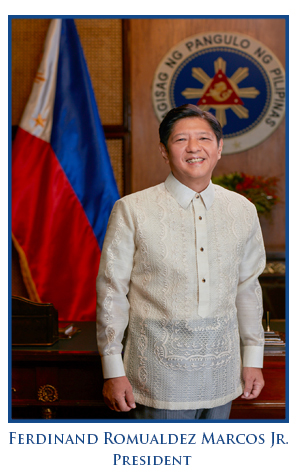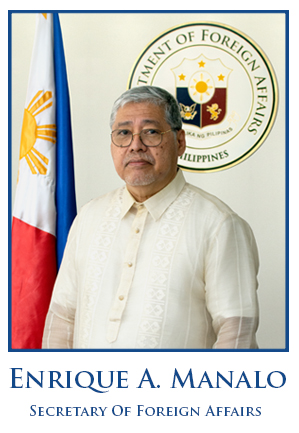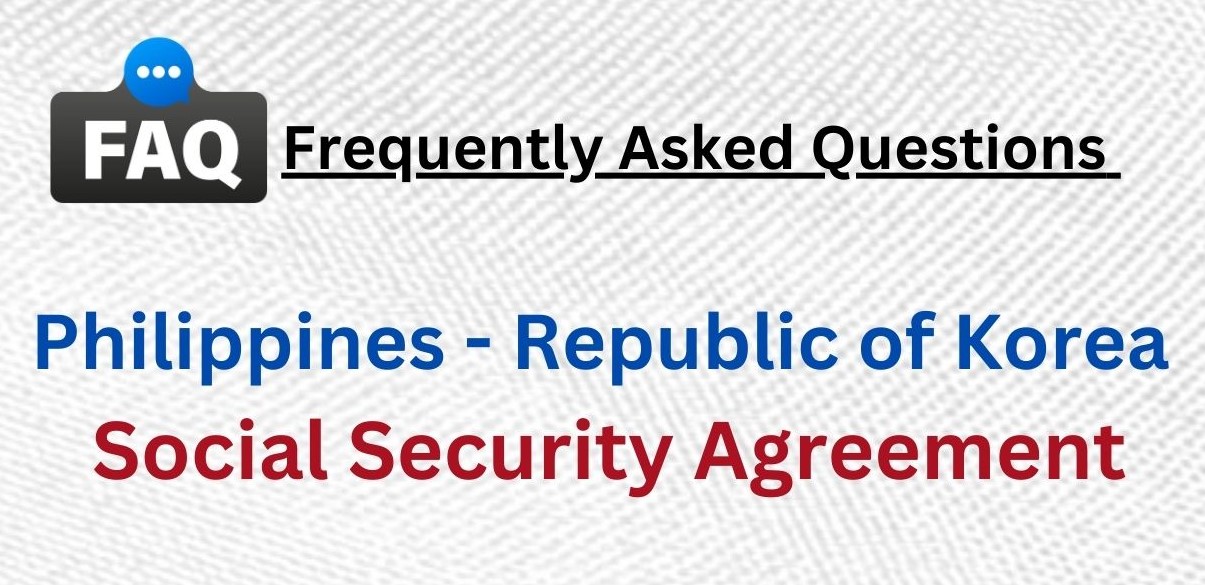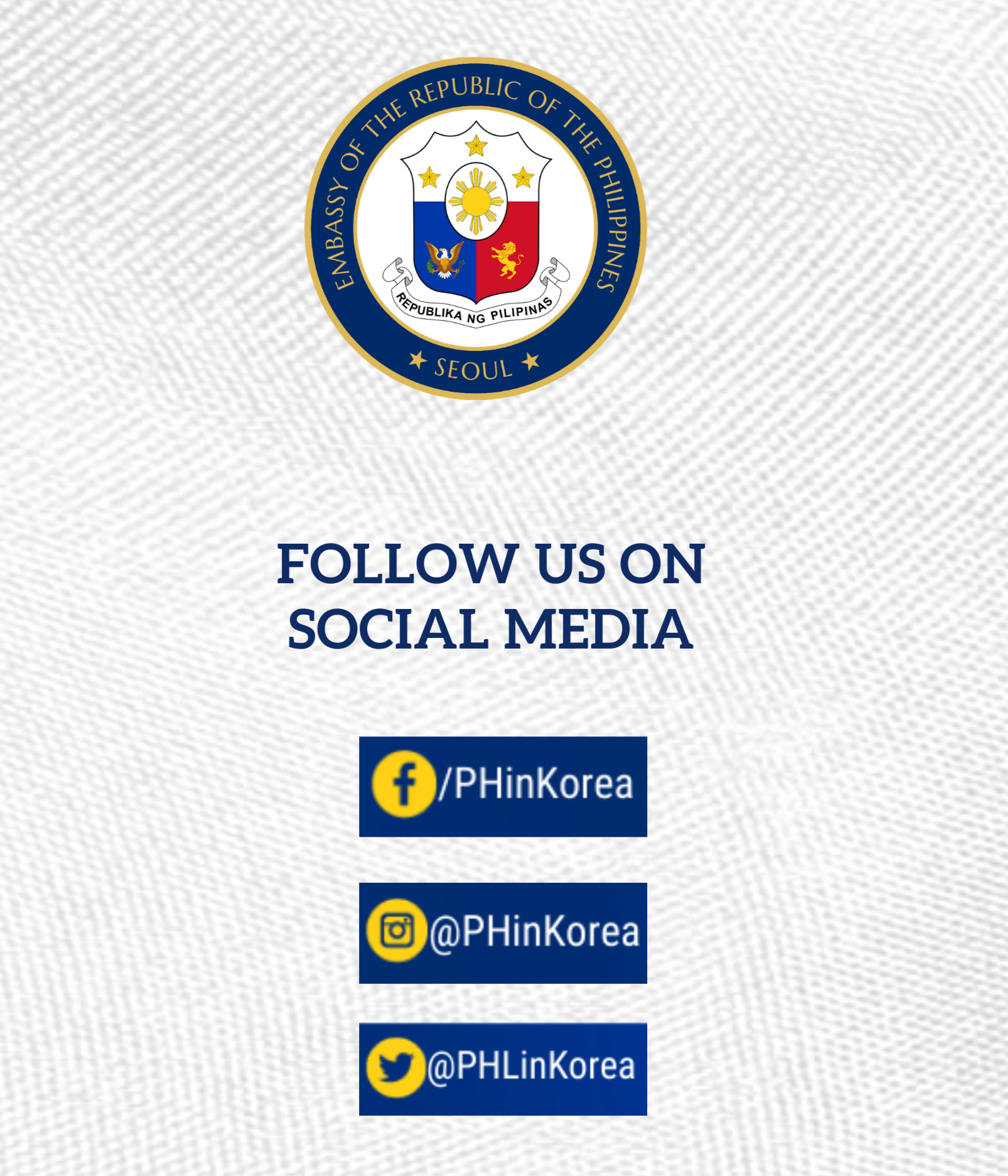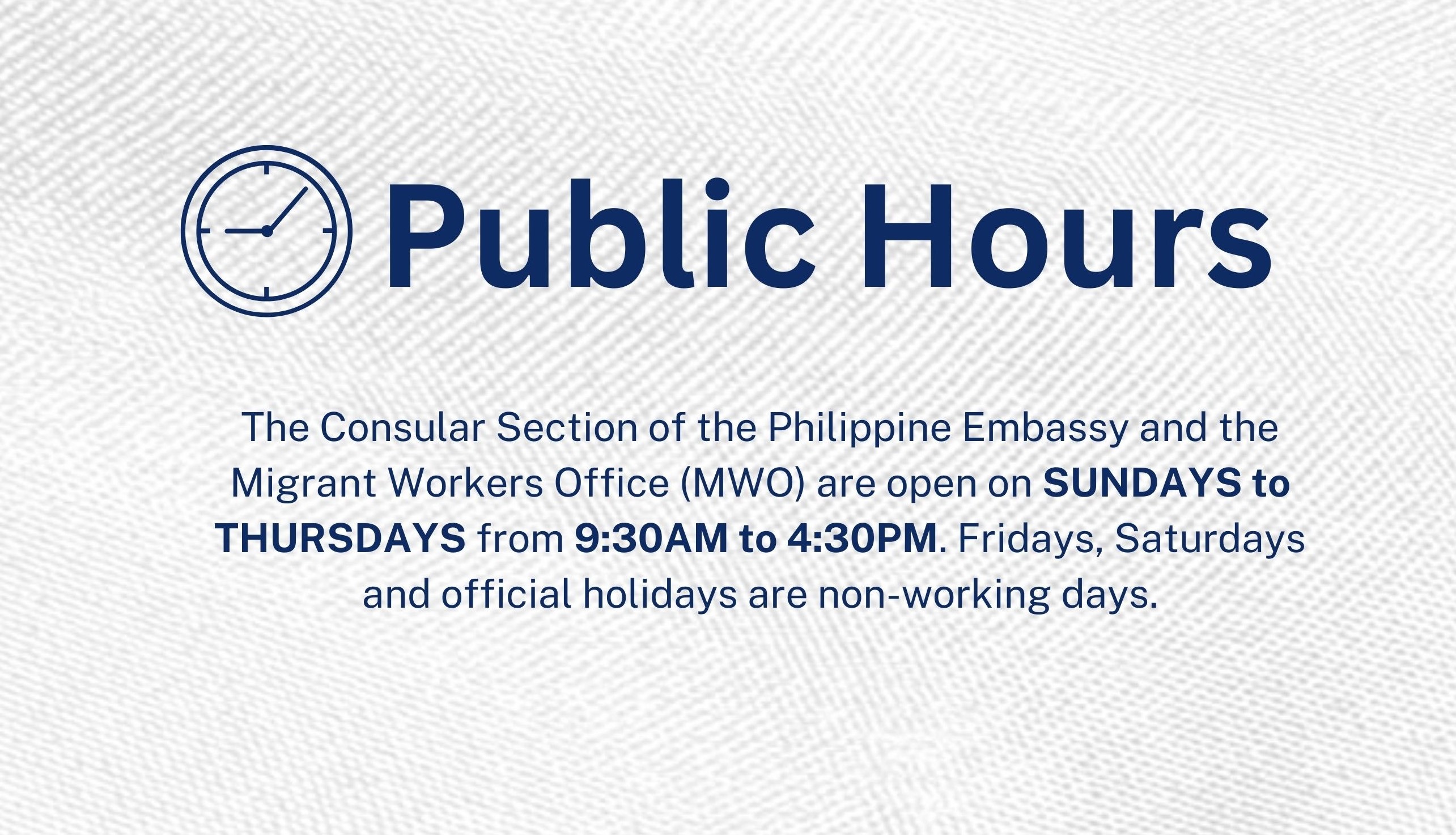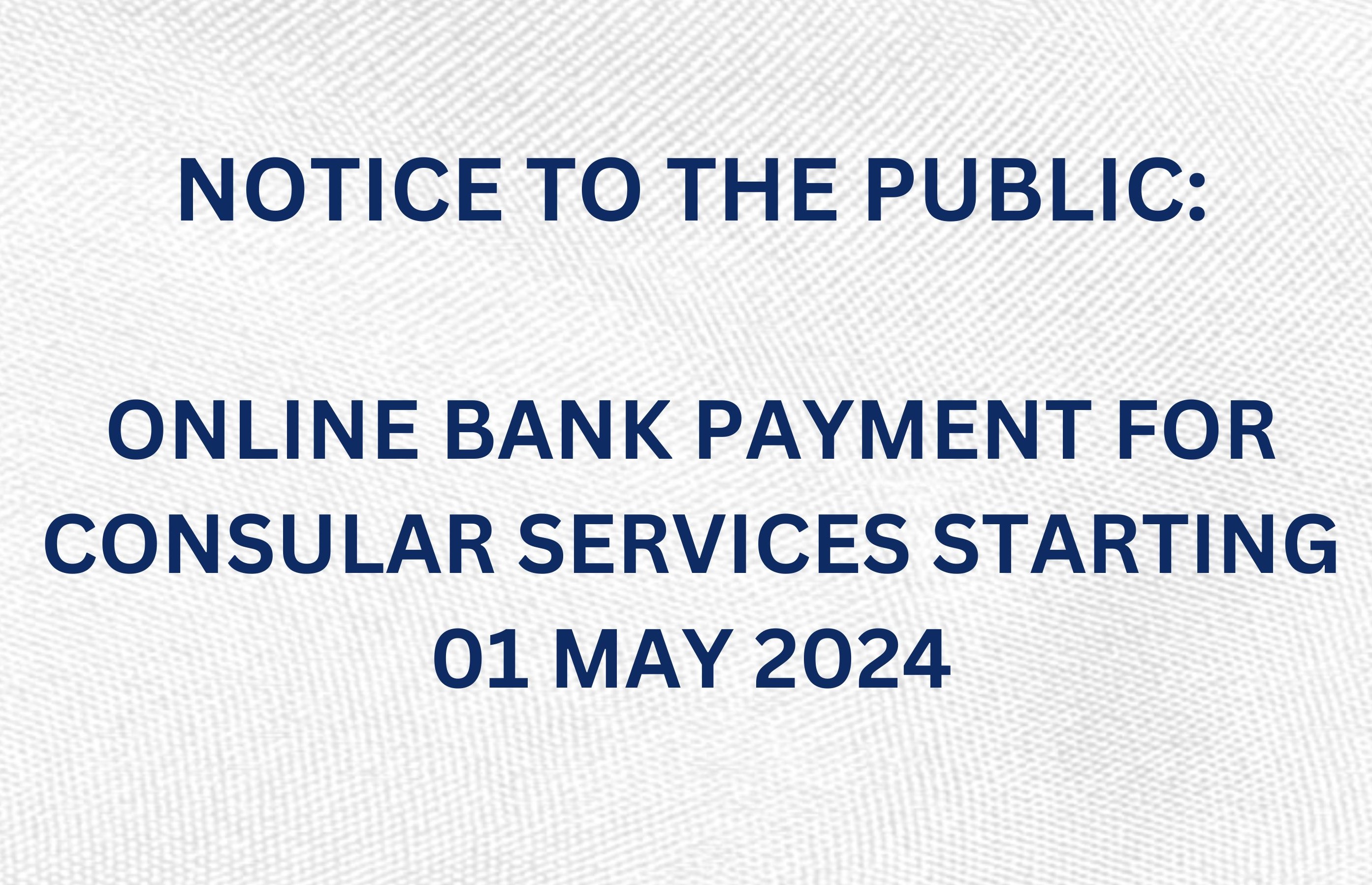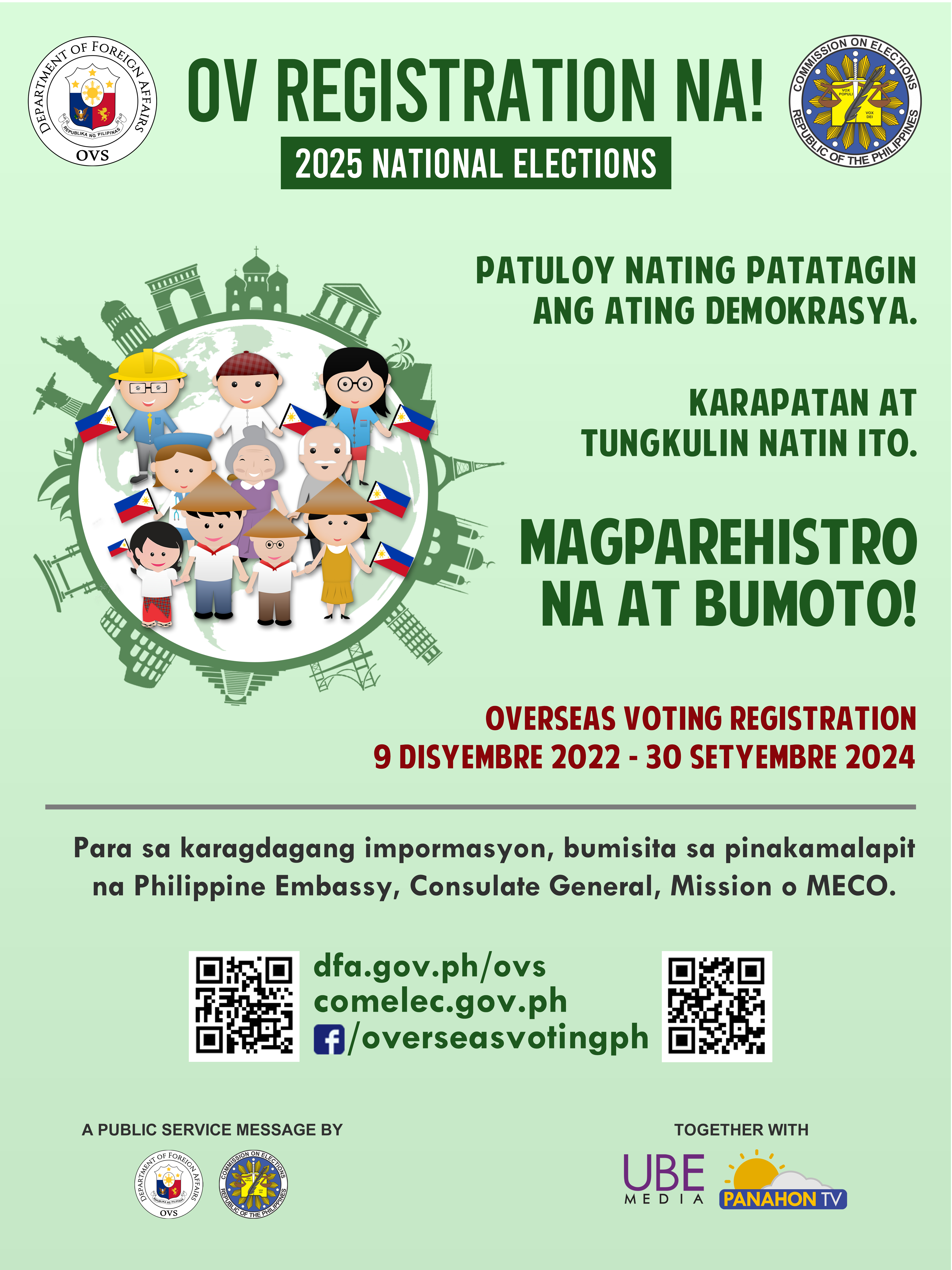INVITATION TO BID OLD AUDIO EQUIPMENT
The Philippine Embassy in Seoul will dispose of its old audio equipment that have become unserviceable and are no longer being used. Please refer to the attached list, for information and reference.
For more information about bidding on these items and/or to set up an appointment for their inspection, please contact Ms. Anna Gabriella E. Guinto at telephone number (02) 796-7387 ext. 312.
These items are being sold as-is and are non-returnable. Please make bids and payments in US Dollars. Minimum bid should be US$30. All sealed bids are due by 18 May 2021 at 5:00 pm.
Interested bidders are required to submit their signed bidding form (Annex A).
Embassy of the Republic of the PhilippinesSeoul, Republic of Korea10 May 2021
UPDATED QUARANTINE AND TESTING PROTOCOLS FOR ALL INTERNATIONAL TRAVELLERS TO THE PHILIPPINES STARTING 08 MAY 2021
The Philippine Embassy in Seoul wishes to inform the public that starting 0001H of 08 May 2021, Philippine Standard Time, the following testing and quarantine protocols for all arriving international passengers to the Philippines shall be implemented:
- The mandatory quarantine period will be for 14 days;
- International arrivals shall be required to undergo a facility or hotel quarantine for ten (10) days upon arrival;
- COVID-19 testing will now be on Day 7 instead of Day 6, with Day 1 being the date of arrival/check-in;
- International arrivals may continue their quarantine at home or in their hotels (as the case may be) from Day 11 up to Day 14, provided they get a negative RT-PCR test result.
For the public’s information.END
08 May 2021
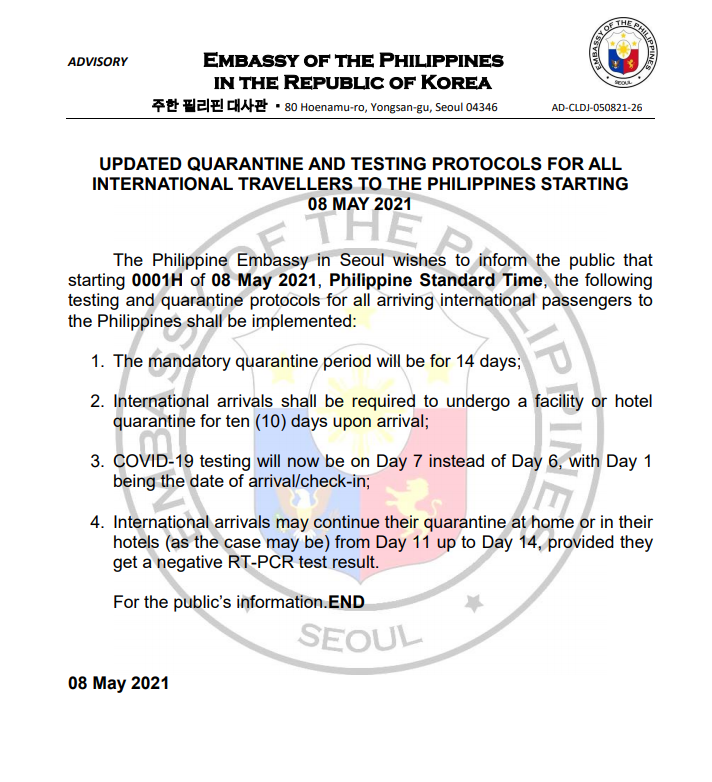
PEAK-Pinoy Webinar: FARMING AND BUSINESS OPPORTUNITIES IN THE CORDILLERA ADMINISTRATIVE REGION featuring "STRAWBERRY BUSINESS OPPORTUNITIES"
We are pleased to invite everyone to the:
Free Webinar on "Promoting ENTREPRENEURSHIP AND AGRIBUSINESS to Filipinos in Korea (PEAK-Pinoy)"
FARMING AND BUSINESS OPPORTUNITIES IN THE CORDILLERA ADMINISTRATIVE REGION featuring
"STRAWBERRY BUSINESS OPPORTUNITIES"
9 May 2021(Sunday) at 3:00PM (KST)
Register now at https://form.jotform.com/211108290736047
This public service is brought to you by the Philippine Embassy through the collaboration of the Philippine Agriculture Office (PAO-Seoul), Philippine Trade and Investment Center (PTIC-Seoul), and Philippine Overseas Labor Office - Overseas Workers Welfare Administration (POLO OWWA- Korea), in partnership with Cordillera Brotherhood Organization (CBO) and Ilocanos in South Korea (ISK)
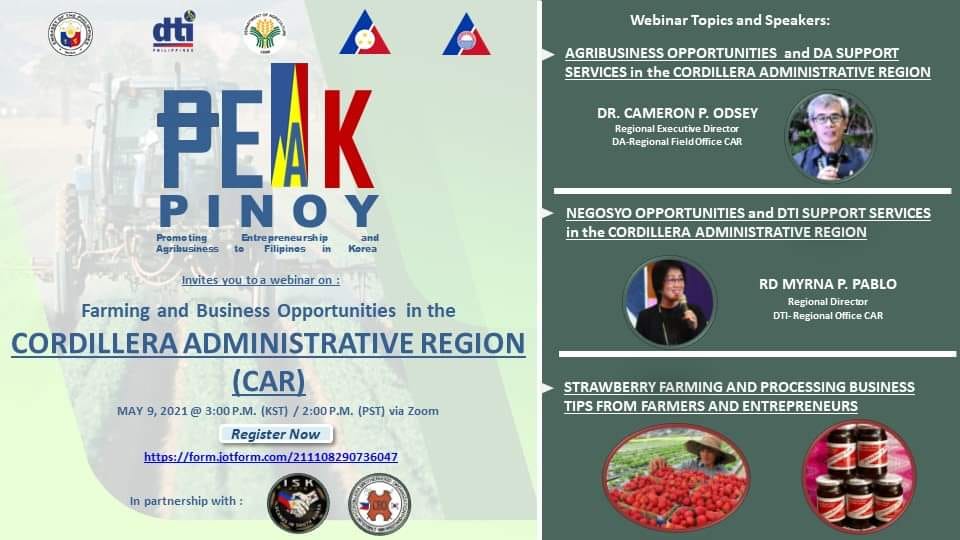
SSS EMAIL ADDRESS FOR OFWS IN KOREA
The Philippine Embassy in Seoul wishes to inform the Filipino community that the Social Security System (SSS) has established the official email address This email address is being protected from spambots. You need JavaScript enabled to view it. to cater to inquiries of OFWs here in Korea.
This email address is being protected from spambots. You need JavaScript enabled to view it. is solely dedicated for our kababayans based in Korea. Mr. Lester Paul S. Mata, SSS Foreign Representative based in Hong Kong and who has functional jurisdiction over Korea will directly respond to your queries through this email address.
This email address is being protected from spambots. You need JavaScript enabled to view it. is a convenient medium for those who seek clarifications on SSS membership, benefits and other related concerns. It also marks the presence, although virtual, of SSS in Korea. END
28 April 2021

Embassy News
- Saturday, 14 June 2025 PHILIPPINE EMBASSY IN SEOUL MARKS 127TH INDEPENDENCE DAY WITH SYMBOLIC LIGHTING OF BANPO BRIDGE
- Saturday, 14 June 2025 PHILIPPINE EMBASSY IN SEOUL COMMEMORATES 127TH INDEPENDENCE DAY WITH FLAG RAISING
- Wednesday, 11 June 2025 President Ferdinand Marcos Jr. congratulates ROK President Lee Jae-Myung on his election
Announcement & News Updates
- Monday, 16 June 2025 NOTICE TO PROCEED TO ABC WORLD TOUR WITH THE CONTRACT FOR THE PROCUREMENT OF ONE-WAY FLIGHT TICKETS FOR THE MEMBERS OF THE NIGHTINGALES
- Monday, 16 June 2025 NOTICE TO PROCEED TO IMPERIAL PALACE BOUTIQUE HOTEL WITH THE CONTRACT FOR THE LEASE OF VENUE (ACCOMMODATIONS) FOR THE MEMBERS OF THE NIGHTINGALES
- Sunday, 15 June 2025 Special Vocal Workshop with the Nightingales, 22 June 2025 at the 2F Sentro Rizal, Philippine Embassy in Seoul

